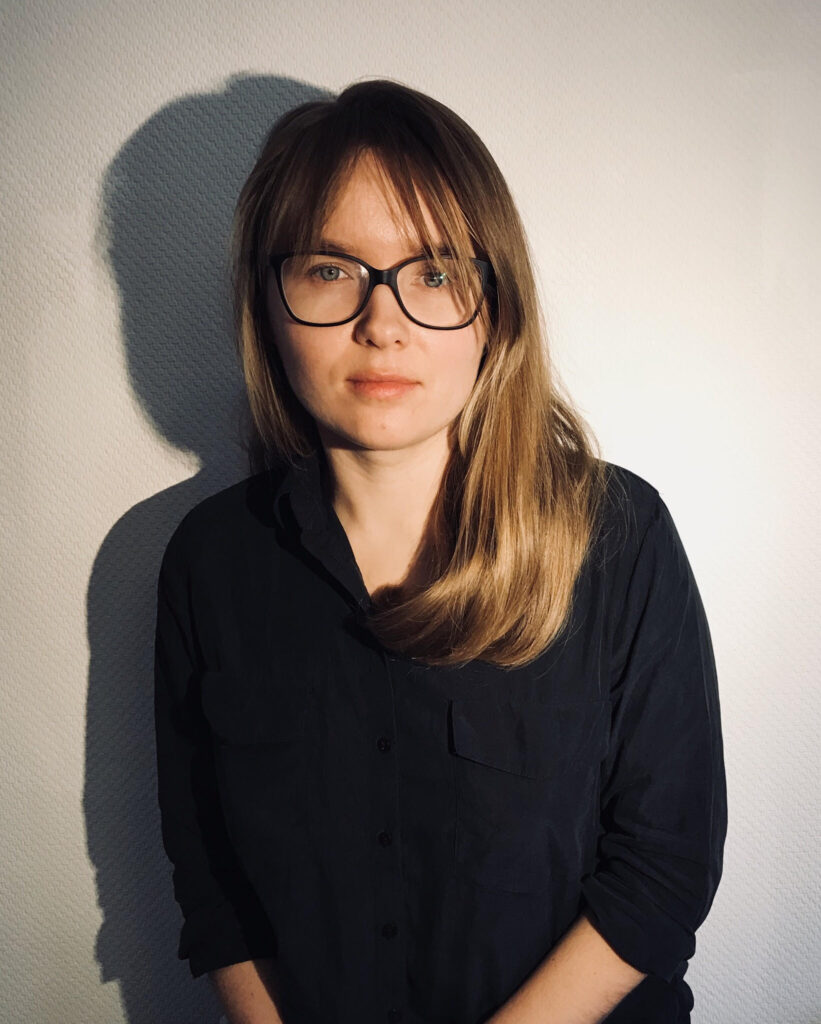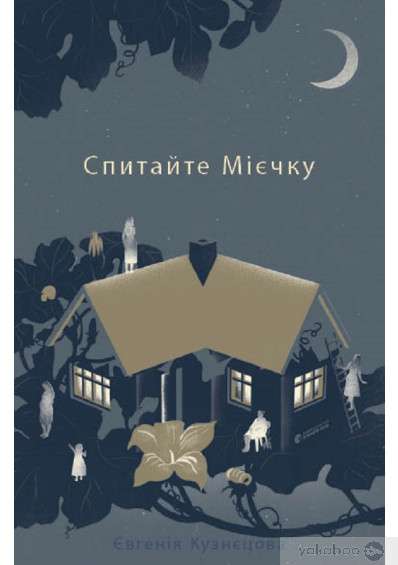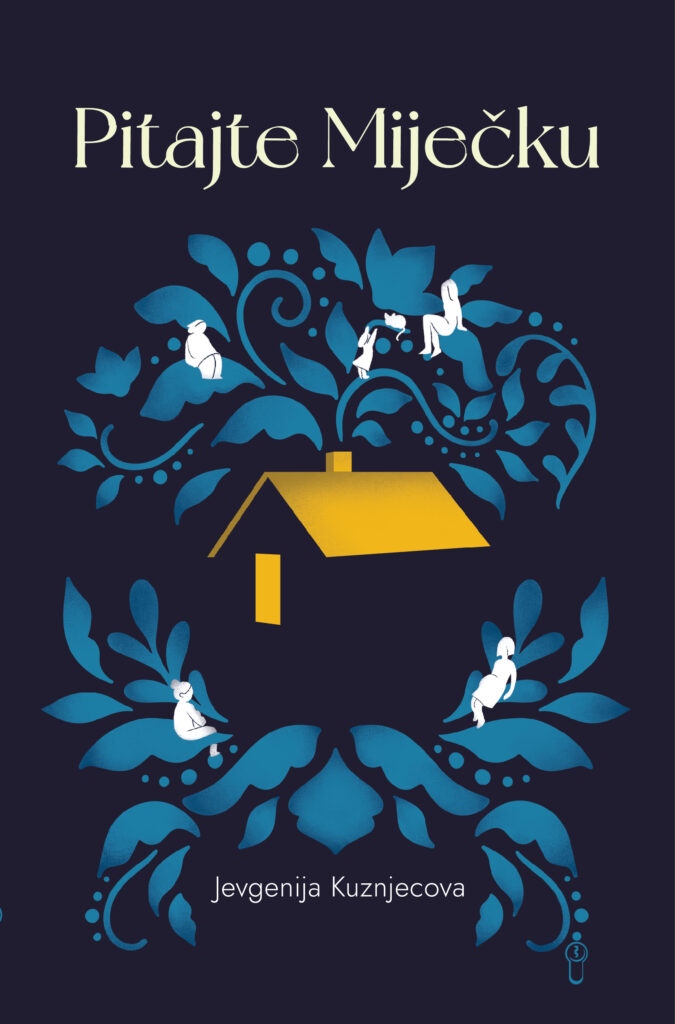Interview with Ukranian writer Eugenia Kuznetsova

(C) EU
This interview is facilitated by EUPL and funded by the European Union.
I am posting snippets of my correspondence with Eugenia.
Dear Eugenia,
Your writing is extraordinarily powerful. I have only been sent snippets but it is enough to gauge your writing prowess.
I grew up in an India when political ties between the Soviet Union and India were strong. As a result, we received a lot of books in translation, inevitably published by Raduga publishers or Peoples Publishing House (PPH). One of the books that I have from my childhood is a beautiful edition of Ukrainian folktales. So I am very pleased to be able to interview you, even if it is at a time of very sad circumstances for your country. Conflict at the best of times is nasty but such relentless use of firepower and other military measures to intimidate Ukraine are terrifying. I sincerely hope that you and your young daughter and extended clan are safe and truly pray and hope that peace returns soon.
Since I have only snippets of your books to read and alas, not the book My Micheka which is discussed widely, I have based my questions on limited access to your creations. Nevertheless, I found your writing to be strong, clear, and sharp. Your reliance on memory for details as evident in the stories is quite extraordinary. Sometimes reading short stories by one author can begin to wane especially if the differences do not stand out. But in the few examples that I read, your preoccupied with domestic drama and the various permutations and combinations it results in human relationships is quite something.
Dear Jaya,
Thank you for your kind words and deep questions.
Eugenia.
****
Eugenia Kuznetsova is a Ukrainian author, translator, and researcher. She was born and spent her childhood in the village of Khomutyntsi in central Ukraine. After graduating Kyiv National University, she received her PhD in literary analysis in Spain. Now, Eugenia works in media research, focusing on conflict-sensitive reporting and countering disinformation, and translates fiction and non-fiction. Eugenia has published two bestselling novels in Ukraine and a non-fiction book on soviet linguistic policies.
Q1. How and why did you opt to write fiction?
I’ve always seen myself as a writer. It has never been a decision or a turning point when I decided to write. Writing is my way of living; it is my way to understand reality.
Q2. “Literature and fiction can explain to us better about certain places and certain people or countries than, for example, integration courses. The world is becoming smaller and smaller. If people learned new languages and read writers of different countries for fun, then it would be good. Most important about translated literature is that we are all much, much similar than we thought. At the human level we share similarities.” In 2022, at the Frankfurt Book Fair, you made these perceptive comments. Do you think now, in this world that is constantly in conflict mode, there is a crying need to create more Art and literature?
I am sure art and literature has potential to enhance understanding between different people and different cultures. Yet, there are things that cannot be “fixed” by art. As a person who is closely watching the tragedy of war and extreme cruelty of the unjust invasion of Russia in Ukraine, I want justice in the first place. Justice may be brought only by power, unfortunately.
Q3. Has your writing style been modified in any manner, especially after the beginning of the conflict between Russia and Ukraine in Feb 2022? Has your determination to include more political content in your fiction strengthened after the Ukraine-Russian conflict?
Politics is a part of daily life. The war has obviously changed the lives of the people I know and therefore it has changed somehow my writing. But I do not work according to an agenda – I just write about people under different circumstances. For now, I can’t afford the privilege to write as if there is no war. But I am seriously considering writing a text with no war in it even in the background just to give my Ukrainian readers leisure time without the war. I am not sure I will be able to do this, but I’ll try.
Q4. Countering disinformation and conflict sensitivity reporting are key focus areas of your profession. How challenging is it to keep your work aside and return to writing fiction? Or do you incorporate elements of it in your fiction?
I work as an analyst for different organisations, but still try prioritizing writing, since I think that’s what I do best. At the same time if I have an idea, it is very hard to put it aside – I must write it down. Otherwise, I feel bad: unwritten things keep bothering me until I write them. Interestingly, sometimes I don’t like what I wrote and easily discard the texts, but I have to write them first to discard afterwards.
Q5. How does your professional expertise as a linguist and as someone who is interested in media speech analysis find writing sentences and their rhythms? Do you convey the cultural particularities or do you focus on rhythm? Does this change from language to language? Or do you adopt the same methodology while writing in Ukrainian or English?
Unfortunately, I am not able to write fiction in any language other than Ukrainian, my first language. I feel the rhythm of Ukrainian, I know how to do wordplay and how to make my characters talk easily. I know how to build flowing dialogues. My Ukrainian writing is easy to read. Usually, I say to my readers that I do not guarantee anything to them but one thing: my texts are well written. I write op-eds or articles in English, but fiction is something else. I don’t even try writing in another language than my first one.
Q6. The samples of your writing that I have read are full of colour and after reading them I am left with the feeling of being enveloped in bright colours and the descriptions of the landscape are such. Yet, your interviews that I heard on the internet are bleak and understandably very worried about Ukraine. How do you manage to keep these two selves apart? Is there no internal turmoil? Or is that you seek some form of peace and hope while writing?
I am an introverted person, and, as I said before, writing is my way of existence. So, I suppose I am just not a great speaker. Also, when interviewed by foreign media I feel the need to talk more about the war in Ukraine, as we need all the international support we can get. For us, as a nation, it’s not a “political armed conflict” as some media put it – it is an existential question.
Q7. The impression that I get from your writing is that you are preoccupied with domestic scenes, interpersonal and intergenerational relationships, and sketching minute characters. Almost as if each individual that you create offers an insight from their moment of time and based upon their experiences. But it also helps clarify for the reader (and perhaps for the author too) some sense of our own time and circumstances. Why do you prefer to write about the family?
I think writing about family is writing about universal human experience. It is something we all share – difficult relations with the loved ones. It’s a universal human language.
Q8. Being in conflict and being an observer could not be easy, irrespective of where you may be based in the world. How do you maintain your perspective?
Modern technology like social media gives us the possibility to live wherever you want. I am sure lots of Ukrainian refugees, despite having fled to various countries, still “live” in Ukraine, are preoccupied by Ukrainian issues. I spend quite a lot of time in Ukraine and have never been able to integrate in any other country, even though I love traveling and enjoy new experiences.
Q9. You are bilingual. Do you read and create new versions of your texts in translation? Or are they the same?
Even though I speak Russian quite well, I can’t say I am bilingual – I never write fiction in Russian and don’t speak it daily. I do translate books written by other authors into Ukrainian, but never translate my own texts into other languages. I speak quite a few languages, like Spanish or German, but writing fiction is much more than being able to express yourself.
Q11. Do you have any Ukrainian author/book/literary website recommendations for readers?
I could recommend a funny book on Ukrainian history A cool history of Ukraine: from dinosaurs till now. It is written for kids, but any adult would enjoy it and understand better the region. If you are a more serious history reader, check out The Russo-Ukrainian War: The Return of History by Serhiy Plokhiy, Harvard University professor, who explains why Russia invaded Ukraine. Another project I would recommend checking out is Ukraïner: it is a team of young people who organize expeditions across Ukraine and prepare amazing videos about various regions of my country. Unfortunately, in the last two years they had to film dramatic events as well. Explore Ukraine and hopefully someday anyone would feel safe to come to visit my country.


Disclaimer: This paper was written under the European Union Policy & Outreach Partnerships Initiative with the view to promote European Union Prize for Literature awardees. The publication was funded by the European Union. Its contents are the sole responsibility of the authors and do not necessarily reflect the views of the European Union.





